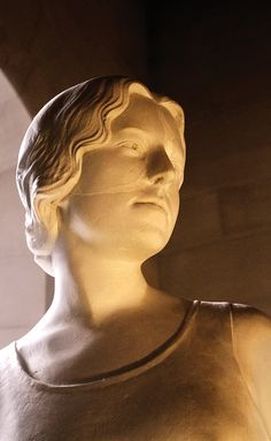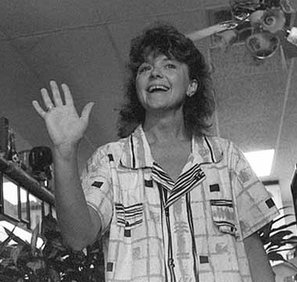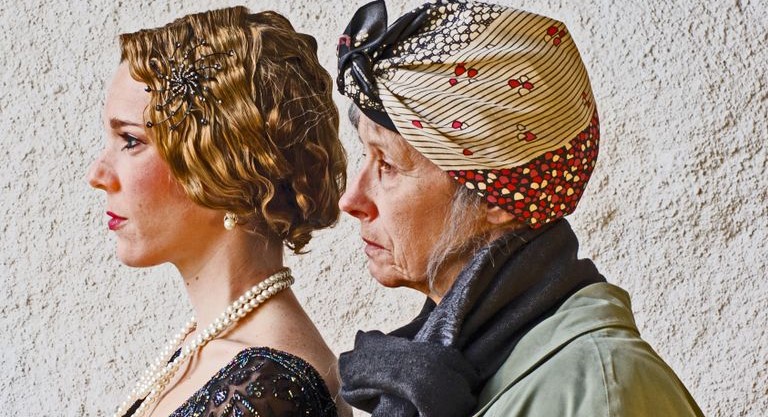|
CAST & DIRECTORS
In a first for The Ponca Playhouse, the play will have two directors, Sam Stuart and Ryan Brown, who will each direct their own interpretation of the play with separate casts of two actresses who will appear in performances on alternate days. "Old Lydie" will be played by Meghann Borum and Morgan Ham. "Young Lydie" will be played by Faith Greenhagen and Shelby Cargill. |

ABOUT THE PLAY - A CASE OF BROKEN IDENTITY
Loosely based on the life of Lydie Marland, as told in the book “The Marland Tragedy,” Lydie was the niece and adopted daughter, then wife of oil magnate and Oklahoma governor, E.W. Marland. Her life was a fairy tale of riches turned Greek tragedy. From wife of one of the wealthiest men in the world to wayward bag lady, she was lost for twenty-two years in the landscape of America.
In the play the lights come up on the heroine returning to consciousness shortly after her death. Lydie had been a vagabond for decades after the economic downfall and death of her oil-baron husband. As she begins to recall her glorious early days, her younger self enters, an apparition in her marcelled hairdo and white frock. The playwright Russell-Ides takes a novel approach to the mystery of what awaits us on the other side and constructs a believable journey that leaves room for hope, redemption, and reflection on a life lived.
Playwright Russell-Ides makes clear that Lydie was no gold-digger. But from the time Lydie (and her teenage brother George) were adopted by their aunt and uncle, Mary Virginia and E. W. Marland, they were treated to extravagance beyond comprehension, after a life of struggle and impoverishment. It’s implied Lydie simply wanted her dazzling, blissful new existence to continue without interruption. Her doting uncle ushered her into a completely different milieu, filled with parties, travel, luxury and pleasure. “Lydie Marland in the Afterlife” makes it easy to understand why she was willing to wed her adoptive dad and uncle.
Russell-Ides’ play, in which the older, dead Lydie confronts her younger self, is a fascinating rumination on choices and tries to answer the question, “'If you could give yourself advice from years of experience, what would you say?” but really it answers, “What would your younger self say back?” And would you even trust old-you?
“Lydie Marland in the Afterlife” is an engrossing, amusing, richly depicted portrait of a woman who was flawed, and just as subject to the cruelties of fate as the rest of us. More than just creating a sympathetic case for Lydie Marland, Isabella Russell-Ides draws us into her exhilarating life, revealing a woman who jumped in headfirst, whether she was on a European spending spree, fox hunt, protest march or cleaning motel bedrooms. Whatever the outcome she embraced the world with sentience and verve.
Loosely based on the life of Lydie Marland, as told in the book “The Marland Tragedy,” Lydie was the niece and adopted daughter, then wife of oil magnate and Oklahoma governor, E.W. Marland. Her life was a fairy tale of riches turned Greek tragedy. From wife of one of the wealthiest men in the world to wayward bag lady, she was lost for twenty-two years in the landscape of America.
In the play the lights come up on the heroine returning to consciousness shortly after her death. Lydie had been a vagabond for decades after the economic downfall and death of her oil-baron husband. As she begins to recall her glorious early days, her younger self enters, an apparition in her marcelled hairdo and white frock. The playwright Russell-Ides takes a novel approach to the mystery of what awaits us on the other side and constructs a believable journey that leaves room for hope, redemption, and reflection on a life lived.
Playwright Russell-Ides makes clear that Lydie was no gold-digger. But from the time Lydie (and her teenage brother George) were adopted by their aunt and uncle, Mary Virginia and E. W. Marland, they were treated to extravagance beyond comprehension, after a life of struggle and impoverishment. It’s implied Lydie simply wanted her dazzling, blissful new existence to continue without interruption. Her doting uncle ushered her into a completely different milieu, filled with parties, travel, luxury and pleasure. “Lydie Marland in the Afterlife” makes it easy to understand why she was willing to wed her adoptive dad and uncle.
Russell-Ides’ play, in which the older, dead Lydie confronts her younger self, is a fascinating rumination on choices and tries to answer the question, “'If you could give yourself advice from years of experience, what would you say?” but really it answers, “What would your younger self say back?” And would you even trust old-you?
“Lydie Marland in the Afterlife” is an engrossing, amusing, richly depicted portrait of a woman who was flawed, and just as subject to the cruelties of fate as the rest of us. More than just creating a sympathetic case for Lydie Marland, Isabella Russell-Ides draws us into her exhilarating life, revealing a woman who jumped in headfirst, whether she was on a European spending spree, fox hunt, protest march or cleaning motel bedrooms. Whatever the outcome she embraced the world with sentience and verve.

ABOUT THE AUTHOR - ISABELLA RUSSELL-IDES
Isabella Russell-Ides is an American playwright who received the 2008 Critics Forum Award for her play Coco & Gigi. Russell-Ides has also received critical acclaim for her works, Leonard's Car ("Outstanding New Play", 2009 Nora's Playhouse, NYC), Fortune Cookie Smash (2007 Best of Fest, Frontera). Russell-Ides is noted for the poetic and heightened language of her texts. Russell-Ides is also a published poet, having written "Getting Dangerously Close To Myself"(Slough Press).
Russell-Ides got the idea for “Lydie Marland in the Afterlife” eight years ago while she and her husband were returning to Dallas after visiting family in Kansas. “We saw a sign on I-35 advertising the Marland Mansion,” says the playwright. “We visited the mansion and fell in love with its beauty and its history.”
"Russell-Ides said it was the broken marble statue, one made in Lydie’s youth that had been supposedly destroyed before she disappeared, that made her fall in love with the story," says Mary L. Clark. “She called it 'a case of broken identity.'”
Isabella Russell-Ides is an American playwright who received the 2008 Critics Forum Award for her play Coco & Gigi. Russell-Ides has also received critical acclaim for her works, Leonard's Car ("Outstanding New Play", 2009 Nora's Playhouse, NYC), Fortune Cookie Smash (2007 Best of Fest, Frontera). Russell-Ides is noted for the poetic and heightened language of her texts. Russell-Ides is also a published poet, having written "Getting Dangerously Close To Myself"(Slough Press).
Russell-Ides got the idea for “Lydie Marland in the Afterlife” eight years ago while she and her husband were returning to Dallas after visiting family in Kansas. “We saw a sign on I-35 advertising the Marland Mansion,” says the playwright. “We visited the mansion and fell in love with its beauty and its history.”
"Russell-Ides said it was the broken marble statue, one made in Lydie’s youth that had been supposedly destroyed before she disappeared, that made her fall in love with the story," says Mary L. Clark. “She called it 'a case of broken identity.'”
Proudly powered by Weebly


